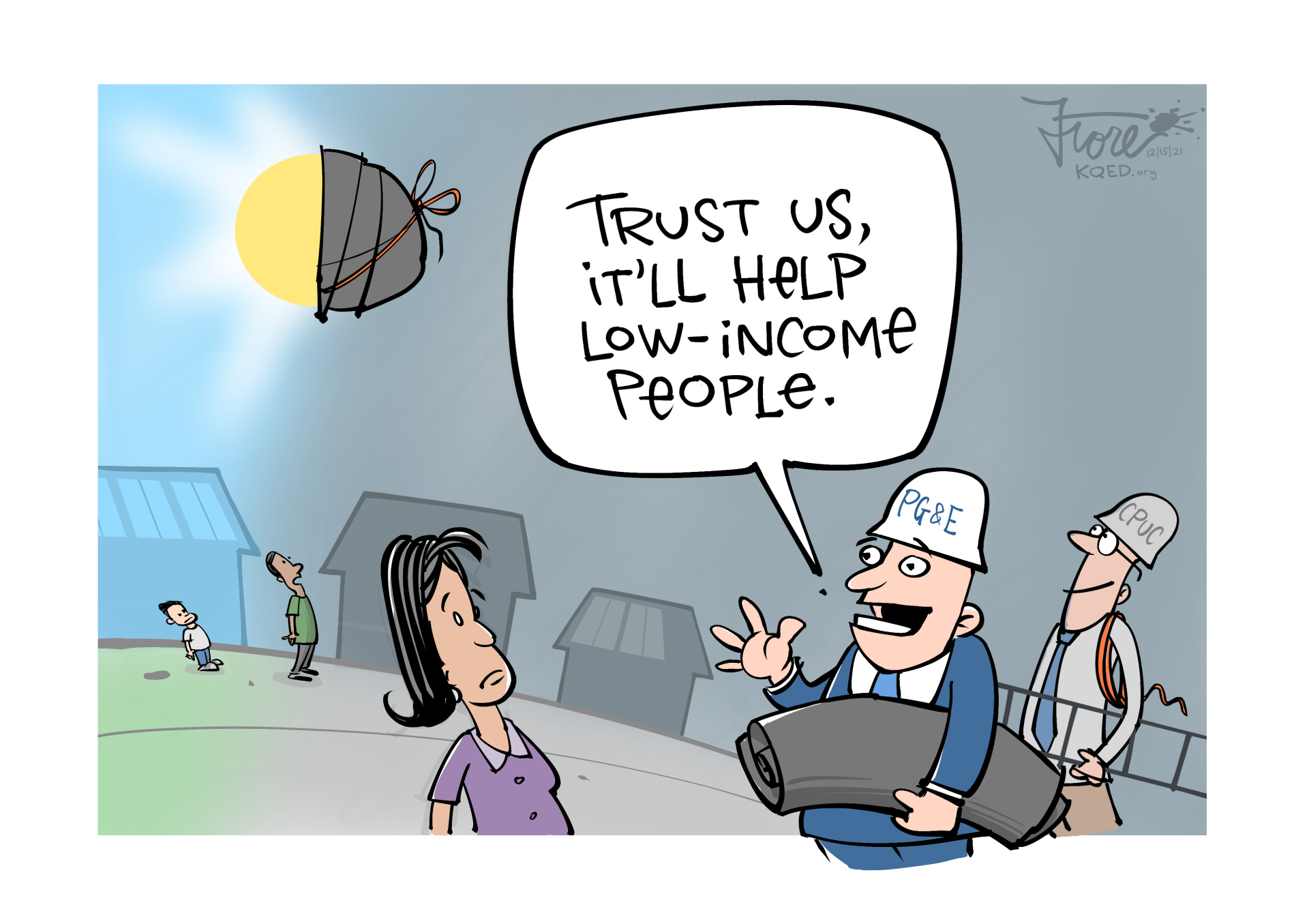In a move welcomed by utilities like PG&E, California energy regulators proposed to dramatically cut incentives for residential solar, claiming that it would make electricity rates more equitable.
The utilities’ argument is that households with rooftop solar aren’t paying their fair share due to “net energy metering” that credits homeowners for the electricity they put into the grid.
People without solar (including people who may have lower incomes or people of color) pay more on their monthly utility bill because they haven’t put any electricity into the grid and don’t have the advantage of net metering.
So utilities and the California Public Utilities Commission want to slash the amount ratepayers with solar are credited and charge them much more every month for the privilege of being able to connect their solar panels to the grid.
Presto! Equity achieved!
Unsurprisingly, the logic behind their reasoning makes about as much sense as paying out dividends to your shareholders instead of maintaining your ancient, outdated transmission lines.
Here’s an idea: How about we get more solar on the roofs of people with lower incomes rather than undermine incentives that are making California a residential solar success story?
Citing data from Lawrence Berkeley National Laboratory, The Sacramento Bee pointed out that nearly half of the households who installed solar in 2019 had incomes less than $100,000.
It turns out the rich-poor divide in solar is not nearly what the utilities are making it out to be.
Not to mention, the impact of climate change falls more heavily on people with lower incomes and people of color.
Let’s keep the sun shining on solar energy.

